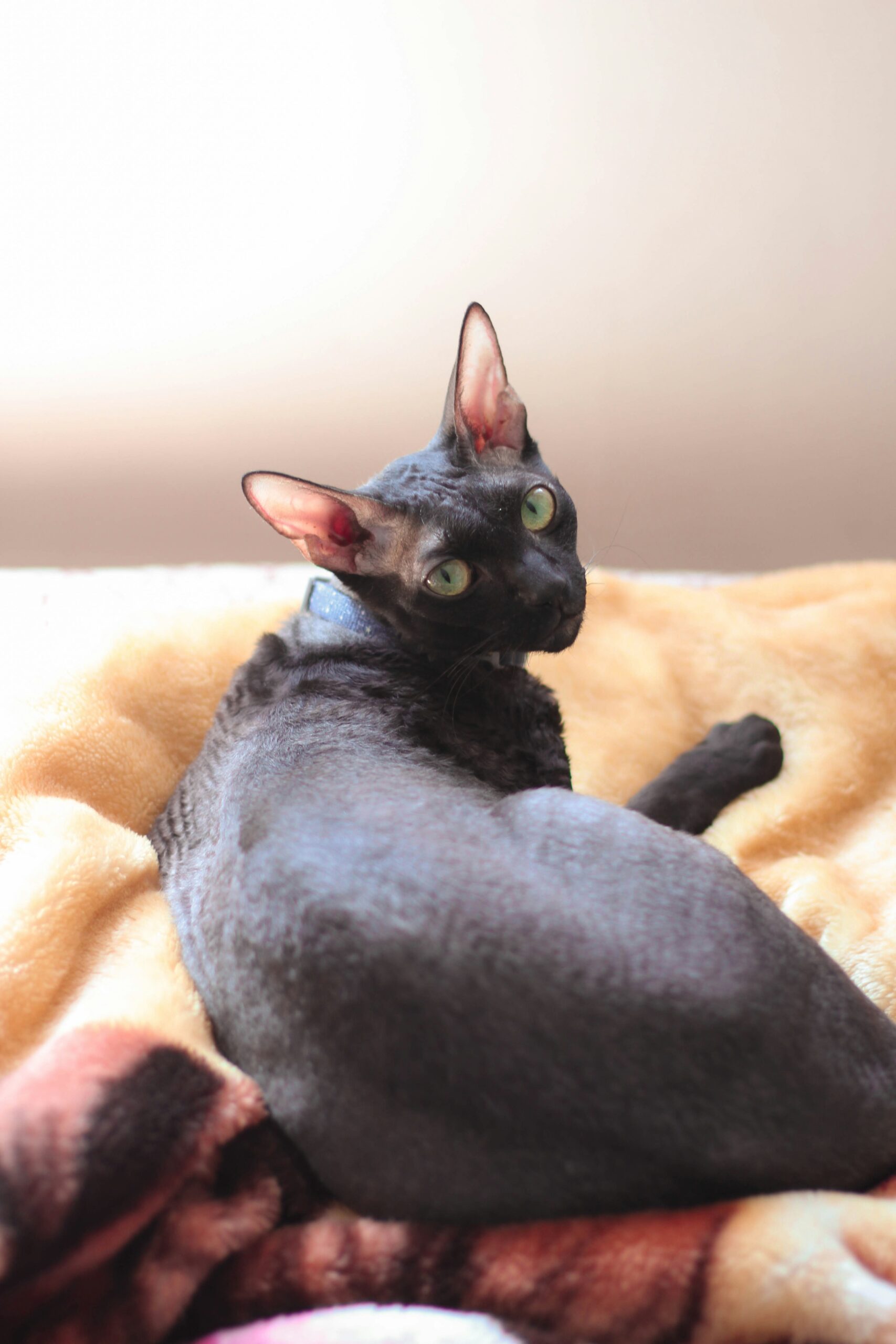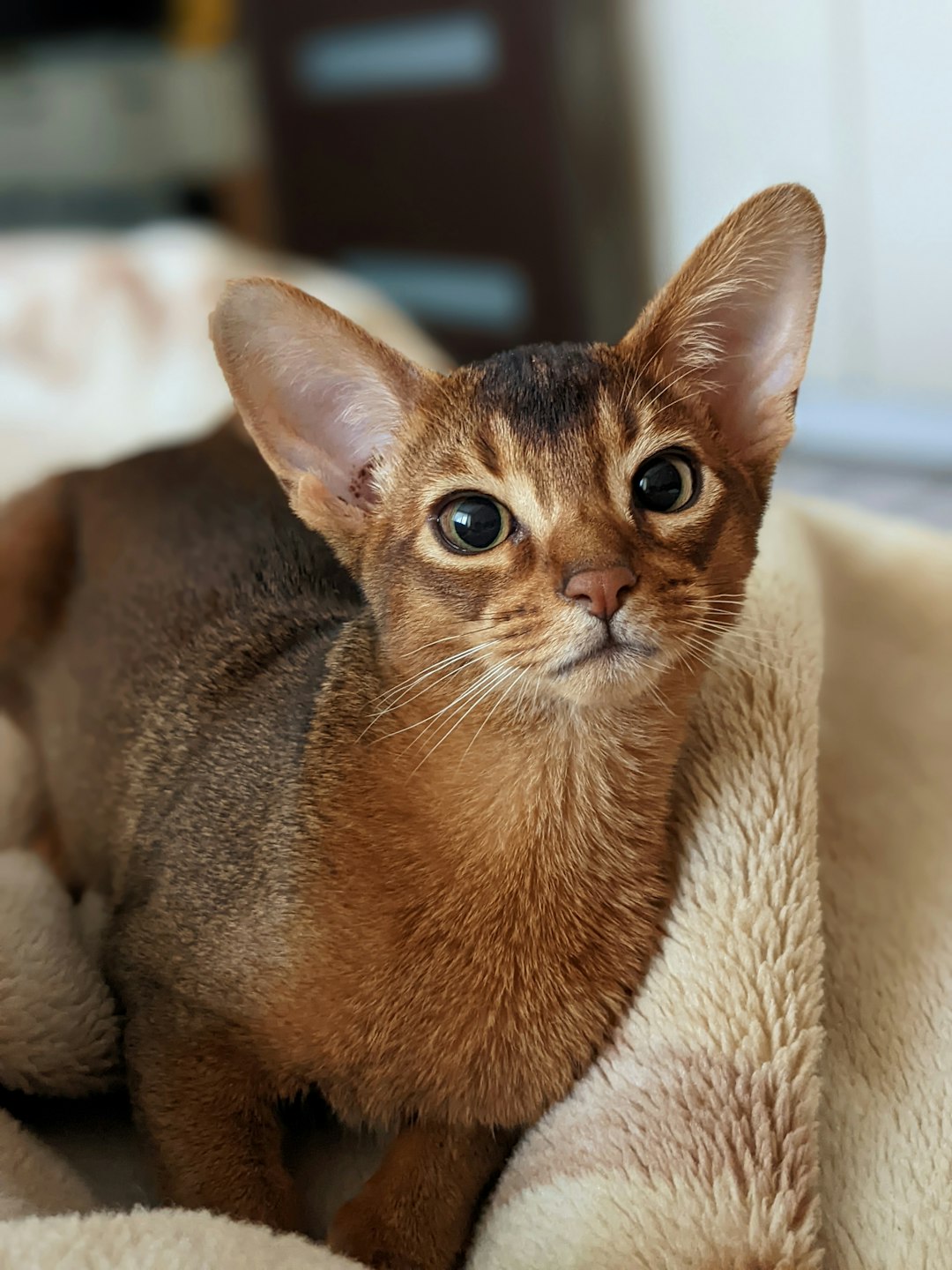Rex cats are fascinating creatures that stand out from the typical feline crowd due to their unique physical traits and vibrant personalities. Understanding the history and origin of the rex cat can provide valuable insight into its distinctive characteristics and temperament. This comprehensive guide will delve into the various aspects of rex cats, covering everything from their grooming needs to common myths surrounding them. By exploring these unique traits, you can make informed decisions about caring for your charming feline friend.
History and Origin of Rex Cats
Rex cats boast a fascinating history that sets them apart from other feline breeds. Originating in the 1950s, the first known rex cat was a result of a spontaneous genetic mutation that altered its fur structure, leading to the creation of the distinctive curly coat that defines this breed today.
Key Historical Points:
- Cornish Rex: The first rex cat, a Cornish Rex, emerged in Cornwall, England. This cat, named “Kallibunker,” introduced the world to curly-haired felines.
- Devon Rex: Shortly after, in Devon, England, another mutation occurred, leading to the creation of the Devon Rex, a breed with similar yet distinct features.
- Global Recognition: By the 1960s, rex cats gained popularity and began winning accolades in cat shows across the globe.
Comparison Table: Cornish Rex vs. Devon Rex
| Trait | Cornish Rex | Devon Rex |
|---|---|---|
| Coat Style | Short, tight curls | Wavy, loose curls |
| Body Type | Slim and elegant | Stocky and robust |
| Ear Size | Large and rounded | Large and elfin |
In summary, the history of the rex cat showcases a remarkable evolution, leading to the beloved and unique breeds we cherish today.
Physical Characteristics of Rex Cats
Rex cats are renowned for their distinct and charming physical features. Notably, here are some key characteristics that set them apart:
Curly Coat: Rex cats have a unique, soft, and curly coat. This texture results from a genetic mutation that affects the hair’s structure, giving them a plush and velvety appearance.
Body Structure: Rex cats possess a muscular and compact build. They typically have a medium-length body, which contributes to their agile movements.
Facial Features: These cats often have a rounded head with prominent cheekbones and large, expressive ears. Their eyes, which can be large and oval, display a variety of colors.
Tail: The tail of a rex cat is usually medium in length and has a slight taper, further enhancing their sleek look.
Comparison of Rex Cat Breeds
| Breed | Coat Type | Body Size | Ear Size |
|---|---|---|---|
| Devon Rex | Short and curly | Medium | Large |
| Cornish Rex | Short and wavy | Slim | Very large |
| Rex Cat Mix | Curly varies | Variable | Typically large |
In summary, when you see a rex cat, their striking features, especially the curly coat and adorable face, are sure to capture your heart. Whether you choose a Devon or Cornish rex cat, you’ll enjoy a pet that stands out in both beauty and personality.
Personality Traits and Temperament
Rex cats are renowned for their distinct personality traits and charming temperaments. When considering adopting a rex cat, understanding these characteristics is crucial for a harmonious relationship. Here’s what you can anticipate:
Affectionate Companions: Rex cats often crave human interaction and bond closely with their owners. They enjoy cuddling and may follow you around the house.
Playful and Energetic: These felines are known for their playful nature. Rex cats thrive on activity and can engage in play for hours, making them excellent companions for families and individuals alike.
Intelligent and Curious: Rex cats exhibit high levels of intelligence, often exploring their environment with curiosity. This trait makes them easy to train but also requires mental stimulation.
Sociable and Friendly: Generally, rex cats are social creatures. They often get along well with other pets and children, contributing to a lively home atmosphere.
Comparatively, rex cats tend to be more outgoing than many other breeds. Their sweet temperament makes them a popular choice for those seeking a loving and interactive feline friend. Embrace all the joy a rex cat can bring into your life!
Caring for Your Rex Cat
Caring for a rex cat requires understanding their unique needs. These playful and affectionate pets thrive in a loving environment. Here are some essential tips to provide optimal care:
Diet: Prioritize high-quality cat food that meets their specific nutritional needs. Ensure their diet includes proteins, vitamins, and minerals.
Hydration: Always provide fresh water. This helps maintain their health and prevents urinary issues.
Exercise: Engage your rex cat with interactive play everyday. Toys like feather wands or laser pointers can keep them active and mentally stimulated.
Safety: Create a safe and comfortable living space. Rex cats are curious and may explore high places, so secure shelves and windows.
Regular Vet Visits: Schedule annual check-ups for vaccinations and health screenings to catch any potential issues early.
Socialization: Spend quality time with your rex cat. They are social animals and thrive on interaction with their human companions.
By following these caring guidelines, you can ensure your rex cat lives a happy and healthy life.
Health Considerations for Rex Cats
When you welcome a rex cat into your home, it’s essential to be aware of specific health considerations unique to their breed. Here are key points to keep in mind:
Genetic Conditions: Rex cats can be prone to genetic disorders such as:
- Hypertrophic Cardiomyopathy (HCM): A common heart condition that affects many cats, including rex cats.
- Skin Sensitivity: Their unique coat can lead to skin issues, making regular inspections necessary.
Regular Vet Check-ups: Schedule annual vet visits to monitor your rex cat’s overall health, including:
- Vaccinations
- Dental care
- Parasite prevention
Diet and Nutrition: Provide a balanced diet rich in proteins to support their active lifestyle. Be mindful of weight gain, as it influences their overall well-being.
Hydration: Always ensure your rex cat has access to fresh water. Dehydration can lead to kidney problems, notably in older cats.
In summary, by understanding these health considerations, you can ensure your rex cat remains happy and healthy throughout its life.
Grooming Needs and Tips
Caring for a rex cat involves understanding their unique grooming requirements. With their distinctive fur and playful nature, grooming helps maintain their health and happiness. Here are essential tips for grooming your rex cat:
Regular Brushing: Although rex cats have a short, curly coat, regular brushing, about once a week, minimizes shedding and prevents matting. Use a fine-toothed comb to remove loose hairs effectively.
Bathing: Bath your rex cat occasionally, as they can develop an oily coat. Use a mild cat shampoo to keep their skin healthy. Ensure to dry them thoroughly afterward.
Nail Trimming: Trim your rex cat’s nails every 2-3 weeks to prevent overgrowth and potential injury.
Ear Cleaning: Check their ears weekly for wax buildup. Use a soft, damp cloth to clean them gently without inserting anything into the ear canal.
Dental Care: Consider brushing their teeth regularly to prevent dental problems.
By routinely following these grooming practices, you can keep your rex cat looking and feeling great!
Training a Rex Cat
Training a rex cat can be a rewarding experience, as these cats possess unique traits that make them both intelligent and eager to learn. Here are some essential tips for successfully training your rex cat:
- Start Early: Begin training when your rex cat is a kitten. Young cats are generally more receptive to new commands and habits.
- Use Positive Reinforcement: Reward your rex cat with treats, praise, or playtime whenever it obeys a command. This encourages them to repeat the desired behavior.
- Keep Sessions Short: Since rex cats can be easily distracted, limit training sessions to 5-10 minutes. This helps maintain their focus and interest.
- Be Consistent: Consistency is key in training. Use the same commands and gestures, so your rex cat can easily understand what you expect from them.
Below is a quick comparison of training methods:
| Training Method | Benefits |
|---|---|
| Positive Reinforcement | Builds trust and encourages learning |
| Clicker Training | Provides clear communication |
| Target Training | Enhances focus and directionality |
By using these approaches, you can effectively train your rex cat, ensuring a strong bond and a well-behaved feline companion.
Common Myths about Rex Cats
Despite their growing popularity, rex cats are often surrounded by misunderstandings. Let’s debunk some common myths:
Myth 1: Rex Cats are Hypoallergenic
While many people believe rex cats produce fewer allergens, this isn’t entirely true. No cat is truly hypoallergenic, as all cats can produce proteins that trigger allergies.Myth 2: They Are Hairless
Contrary to popular belief, rex cats have soft, curly fur rather than being completely hairless. Their unique coat is a result of a genetic mutation.Myth 3: Rex Cats are High Energy
Although they enjoy playtime, rex cats usually have a moderate energy level. They appreciate lounging just as much as engaging in active play.Myth 4: They Can’t Be Left Alone
While rex cats often crave companionship, they can adapt well to being left alone during work hours, especially if they have toys to keep them occupied.
Understanding these myths will help potential owners make informed decisions about welcoming a rex cat into their homes!
Frequently Asked Questions
What are the distinctive physical features of Rex cats?
Rex cats are well-known for their unique physical attributes, which primarily include their curly fur, large ears, and prominent cheekbones. Their fur is soft and has a distinct wave or curl due to a natural genetic mutation affecting the hair texture. This curly coat, combined with their slender, muscular body, gives them a striking appearance. Additionally, Rex cats often have almond-shaped eyes, which can come in various colors, contributing to their charming and playful demeanor.
How do Rex cats differ in temperament from other cat breeds?
Rex cats are typically characterized by their playful and affectionate nature, setting them apart from many other cat breeds. They tend to be highly social animals, often forming strong bonds with their human companions and enjoying interactive play. Their intelligence makes them easy to train, and they thrive in environments where they can engage with family members. Unlike some other breeds that may be more reserved, Rex cats are generally outgoing and curious, which makes them excellent companions for families and singles alike.
Are Rex cats hypoallergenic, and what does that mean for allergy sufferers?
While no cat breed is completely hypoallergenic, Rex cats often produce fewer allergens than other breeds. This is due to their unique fur, which does not trap dander and saliva as much as traditional cat coats. Allergy sufferers may find that they experience fewer symptoms around Rex cats, but individual reactions can vary. It is important for potential cat owners with allergies to spend time with Rex cats before bringing one into their home to ensure they can manage their symptoms effectively.
What are the grooming requirements for Rex cats?
Rex cats have relatively low grooming needs compared to many feline breeds, thanks to their short, curly fur that does not mat easily. Regular brushing, about once a week, is usually sufficient to remove loose hair and reduce dander accumulation. Additionally, because they have less fur, they might need a bath more frequently to maintain their skin and coat health, but over-bathing should be avoided to prevent dryness. It’s also essential to check their ears and clean them regularly to avoid wax build-up.



